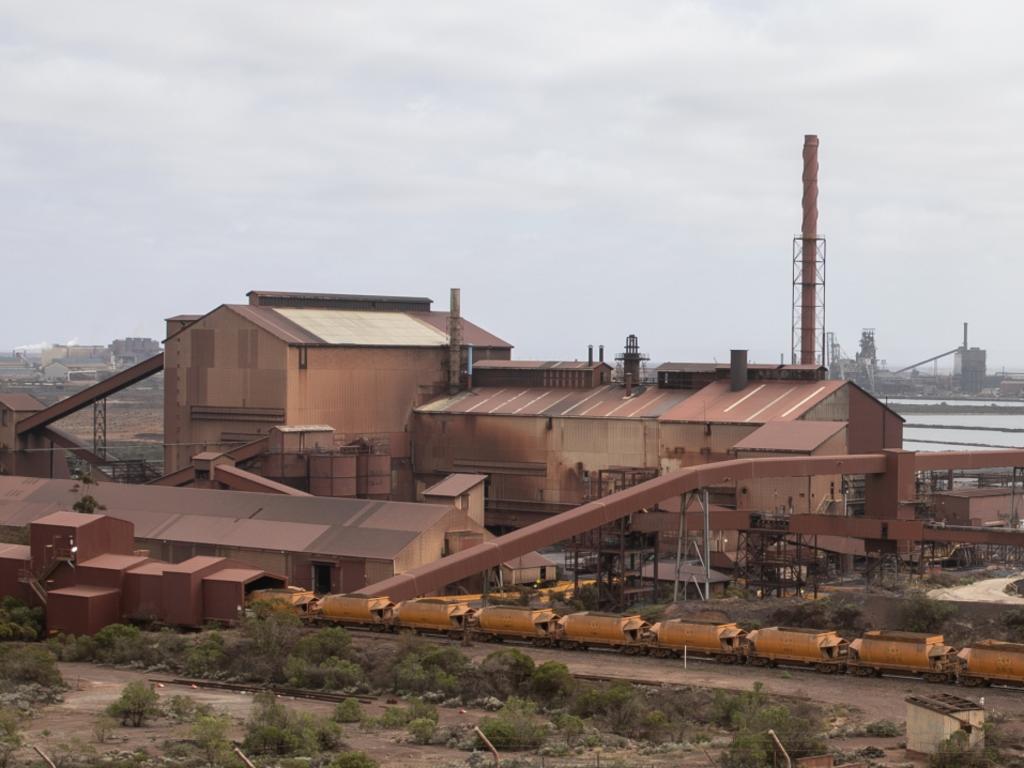BHP joins Chinese producer Baowu to explore green steel
China may be targeting Australian goods in its trade stoush with Canberra, but it is still open for business when it comes to mining.

China may be targeting Australian barley, beef and even the finer things like wine and lobster in its trade stoush with Canberra, but it is still open for business when it comes to mining.
Mining giant BHP has signed a memorandum of understanding with Chinese steel producer Baowu to invest up to $US35m ($48m) to curb greenhouse emissions in the global steel industry.
BHP said the five-year partnership would focus on the development of “low carbon technologies and pathways capable of emission intensity reduction in integrated steelmaking”.
“Under the MOU, the deployment of carbon capture, utilisation and storage in the steel sector will also be investigated at one of China Baowu’s production bases,” BHP said.
The deal mirrors the one signed between Rio Tinto, Baowu and Tsinghua University in September 2019 to “develop and implement new methods to reduce carbon emissions and improve environmental performance across the steel value chain”.
That agreement was brokered by the China Iron and Steel Association and signed by Rio boss Jean Sebastien Jacques.
Unlike Rio, however, metallurgical coal is still a major part of BHP’s business, earning the company $US1.9bn last financial year.
But even though BHP is helping fund technology that could hasten coal’s exit from the steelmaking process, and is exiting some of its lower-grade coking coalmines in Queensland — announcing in August it was looking for a buyer for its share of its joint venture with Mitsui — the company does not believe coking coal will be driven from the steel industry for decades to come.
In an analysis posted on its website this week, BHP said it believed the blast furnaces that rely on coking coal to make steel would still make up half of global production in 2050.
The cash will come from a $US400m fund announced by the company in July last year, aimed at helping to develop technologies to reduce its own carbon emissions and those of its customers.
China has been targeting a range of Australian soft commodity exports following Prime Minister Scott Morrison’s push for an inquiry into the origins of COVID-19, which was first detected in the Chinese city of Wuhan late last year.
The deal with Baowu comes as BHP acquired an additional 28 per cent interest in the Shenzi Field in the deepwater Gulf of Mexico for $US505m from Hess Corporation.
The transaction brings BHP’s working interest to 72 per cent and adds about 11,000 barrels of oil equivalent per day of production.
Shenzi is a six-lease development in the Gulf of Mexico and is structured as a joint ownership: BHP as operator with a 72 per cent interest and Repsol with 28 per cent.





To join the conversation, please log in. Don't have an account? Register
Join the conversation, you are commenting as Logout